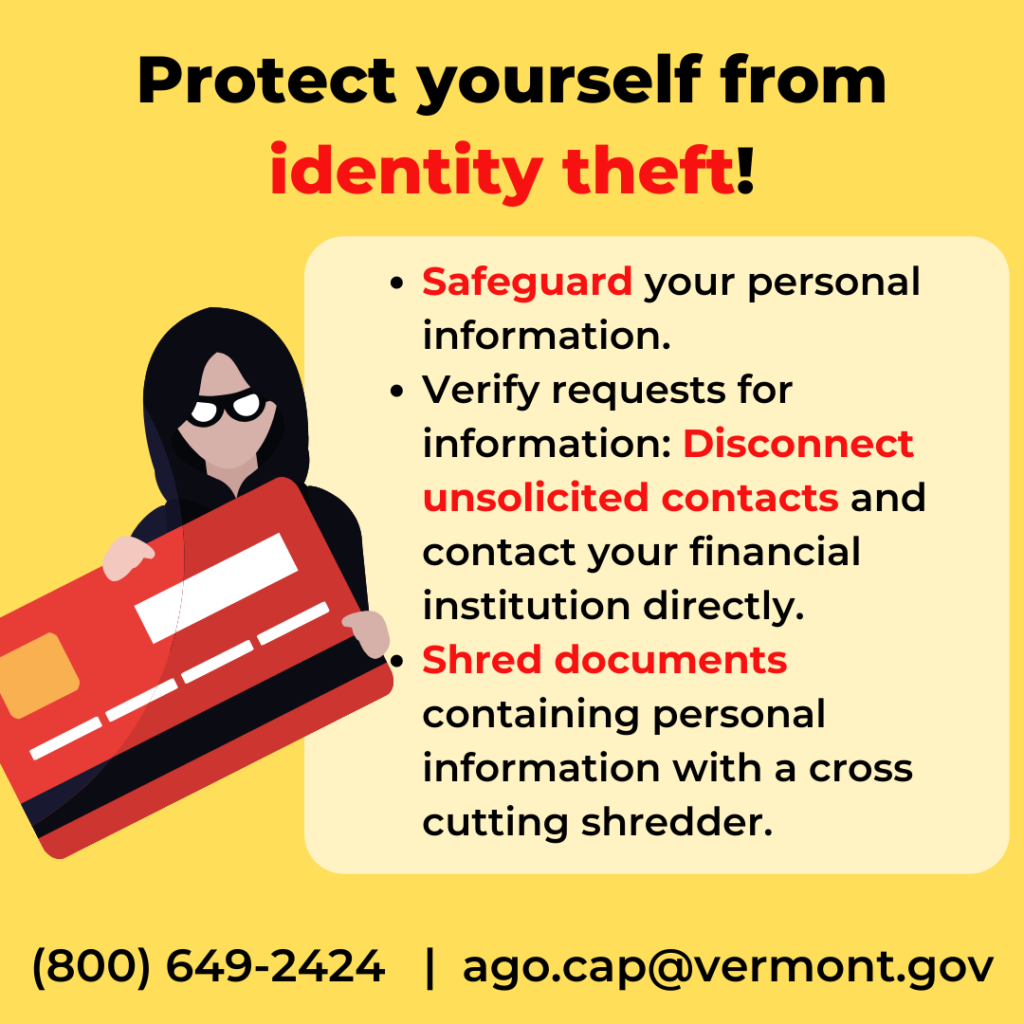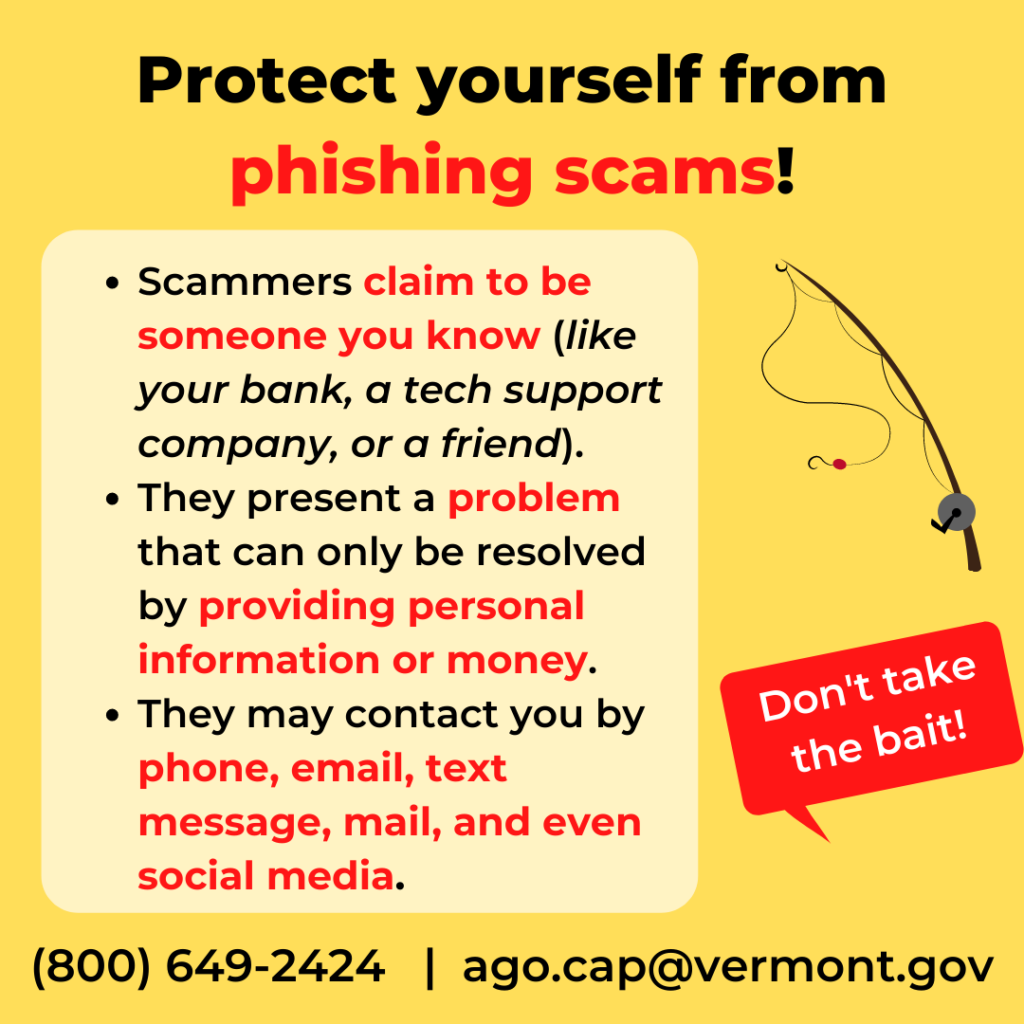By Crystal Baldwin
When I presented on the topic of identity theft a decade ago, the concept seemed somewhat distant, impacting few individuals with identity thieves using dated and laborious tactics to steal identities. A section of my presentation was devoted to informing about dumpster diving—the fact that people can get a lot of information about your identity from the trash you discard—and encouraging shredding as an identity theft prevention step. Another section focused on phishing and educating about what phishing is; not to be confused with fishing, except metaphorically of course.

In the age of the robocall and the internet, phishing and identity theft have become more sophisticated in that scammers can make the same automated call to many people at once and data security breaches expose consumers to widespread identity theft.
Even with advances in technology, identity thieves can still obtain your personal information by rummaging through your trash and phishing. To demonstrate, let’s take a quiz:
What do you do with your expired credit card when a replacement arrives in the mail?
A. Cut it down the middle and throw it out. The card cannot be used once the magnetic strip is severed.
B. Run it through a straight-line shredding machine. The card will be of no use when made into little strips.
C. Cut it into as many small pieces as possible, either with scissors or a cross-cutting shredder. Throw out the pieces in different trash bags. It will be virtually impossible to decipher the card with it in so many pieces and places.
D. Discard as it is. Without additional instruction from the bank, no additional steps are necessary. The card is of no use once it expires.
My answer is C: Cut the card into a million pieces and discard in multiple places. Why? Because even though the card is expired, with card updates the card number stays the same. Once a determined scammer has obtained the card, all they need to do is follow up with a strategic phishing phone call to you. When they call, they may claim to be your financial institution and ask a series of phishing questions, which exposes other important numbers about the valid card in your possession: the expiration date and the CCV.
What exactly is phishing?
A. A sport of catching fish, using a fishing pole.
B. A fun excursion with Vermont Phish Phans.
C. The fraudulent attempt to obtain your personal information or data.
D. Testing the water pH before ice fishing.
Hopefully this quiz question was easier. The answer is also C.
Identity thieves phish for information about you, your Social Security number, your bank account number, your credit card and debit card numbers, your birthday, and more in order to use the information for their own financial gain. When an email purports to be your bank, saying you have been locked out of your account and you must login using the enclosed link, a scammer hopes you provide them all of your personal information by completing their realistic-looking bogus form. Once you have, they can access and use your account. And, depending on the information you have provided, they may also open up new lines of credit in your name without your knowledge or consent. Identity thieves have opened home loans, car loans and credit cards. They usually don’t pay the bills they run up, creating a mountain of work for you to dispute debts you do not owe.
Phishing scammers may contact you by email, phone, text message, and any other communication mechanism you use currently, including social media. Phishing scams often present a problem that must be solved by you disclosing some personal information. They may even pretend to be your computer company, warning about viruses that need to be repaired on your computer. They offer to help you resolve your virus problem, if you grant them access to your computer and, unknowingly, your personal information stored on your computer. Phishing scammers may also say a package will soon be delivered to you and you must reply if you did not order a product, or else your credit card will be charged. Then when you call, they ask for your credit card number.

Phishing scams can be tricky, because there are scenarios in which a bank institution may contact you, such as if there has been fraudulent activity on your credit card. Scammers take advantage of this and try to replicate it. Rather than trying to determine the difference between a scam call and a call from your bank, take out the guesswork by disconnecting the contact and calling your bank directly on a number you know to be valid.
Resist the impulse to reply to urgent requests of phishing scammers. By slowing down and taking steps to verify, you can stop phishing scammers from reeling you into their trap.
Help CAP prevent scams by sharing this information with your community. Have a scam to report? Use CAP’s online scam reporting form.
For more information about identity theft, visit our website.
Help us stop these scams by sharing this information with those you care about. Get notified about the latest scams: Sign up for VT Scam Alert System alerts.
